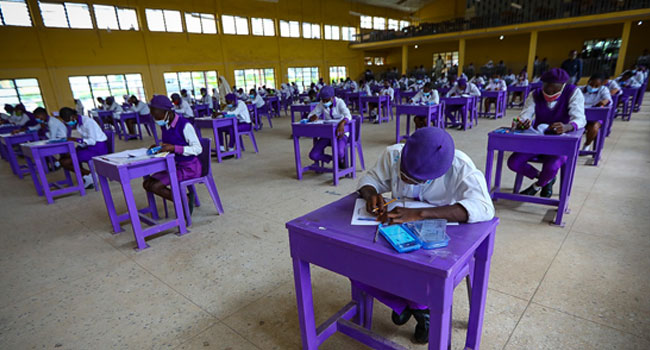Education stakeholders in Bauchi State have condemned the new policy of education, which bans students under 18 years from writing WAEC, NECO, JAMB, and other examinations as announced by the Federal Government through the Ministry of Education.
All those who spoke to Tribune Online opinied that the new policy, if fully implemented, will further negatively impact the education sector of the country, which had been battered already.
They are of the opinion that rather than talk about age in writing exams, the government should seek better ways of salvaging the dwindling educational performance.
Abdullahi Yalwa is a Chief Lecturer at the Abubakar Tatari Ali Polytechnic (ATAP) in Bauchi. He opined that “this may have an adverse effect on enrolment of students, most especially of the female gender across the Northern region, where culture and region have unsettled issues with the formal or western education.”
According to him, “As a nation with increasing private schools and very poorly managed public institutions, we are likely to witness educational desertion by the supposed students, mostly of the elites, who will opt for better options abroad.”
He stressed that “the children of nobody will end up not attending the school due to time waste. The types of food we eat nowadays have turned our children into special breeds, usually appearing older than their age, which makes such a policy inappropriate.”
Abdullahi Yalwa also said that the nation should concentrate on fixing the rotten standard of public education and resolving an incessant industrial dispute instead of this cheap glory hunting. In many climes, no one cares about how old you are but how good you are.”
“You have a lot of under-18-year-old Nigerians in correctional facilities due to one issue or the other, including the last-end bad governance protest, yet you are disqualifying the same age from taking examinations,” he enthused.
According to him, “Some specialised institutions like POLAC have 17 years as minimum entry age and 21 years as maximum; one can spot the contradictions by the same government.”
He concluded, saying, “The NYSC policy of 30 years maximum as the age of mobilisation is another issue in a nation without a stable academic calendar. I think the policy is counterproductive and lacks empirical psycho-scientific background, in my view. Thank you.”
An official of the Nigeria Union of Teachers (NUT) pleaded anonymously and condemned the policy, saying that if strictly implemented, it will have a serious negative impact on the education sector.
He added that it will lead to other criminal issues as parents will begin to falsify the ages and dates of births of their children in order to meet the requirements, a development he said will have an adverse effect on the country as a nation.
Also, Rev Raphael Adetunmibi, proprietor of Baptist Royal Academy (BRASS), Bauchi sees no sense in the new policy, saying that it will retard the little progress made in revamping the education sector of the country.
The Clergyman urged the government to rethink and look for better ways to correct any anomalies noticed in the education sector, expressing fear that if implemented, the new policy will completely kill the education sector.
According to him, “If the child is not allowed to write WAEC, NECO, and JAMB, it will cause a setback on the growth of the child who is talented and capable of writing WAEC, NECO, and JAMB before 18 years.”
Raphael Adetunmibi added that “it will also affect the entire life of that particular child because when the child is supposed to finish his or her education at the age of 21 or 22, he or she would be rounding up at the age of 25 to 30.”
“Therefore, they would get married late; it will affect his or her employment because many companies and even the government are now setting age limits for those that would be employed,” he added.
The clergyman concluded, saying, “It also means that some parents would have to be using their gratuity and pension money to sponsor their children to school because someone who doesn’t finish his or her education at the age of 25—when do we think such a person will secure employment and start preparing for marriage and then sending his or her children to school?
Mrs Eunice Adebisi pleaded with the government to reverse the decision because, in her opinion, it will lead to more out-of-school syndrome as parents, especially those in rural areas, will be forced to withdraw their children from the schools.
ALSO READ THESE TOP STORIES FROM NIGERIAN TRIBUNE
